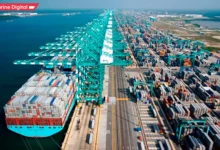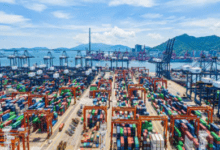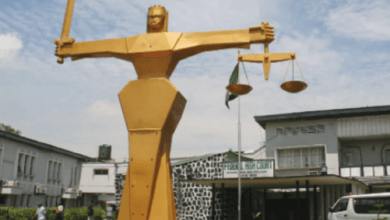
The role of World Bank in the Nigerian economy
The world bank started in 1944 in the town of Bretton Woods, New Hampshire in the United states of America after a meeting by 44 delegates. The world bank has some affiliates and they are: the international development association (IDA), the international bank for reconstruction and development (IBRD), the international center for settlement of investment diaputes (ICISD), international finance corporation (IFC) and the multilateral investment guarantee agency (MIGA).
– IDA: is the soft loan window of the IBRD and was established in 1960.it is an affiliate of the world bank and some of its objectives includes to provide assistance for poverty alleviation to the worlds poorest countries, to provide concessional financial assistance and macroeconomic management services to the poorest countries so as to raise standard of living.
👉 Relocate to Canada Today!
Live, Study and Work in Canada. No Payment is Required! Hurry Now click here to Apply >> Immigrate to CanadaThe role of the world bank in Nigeria is often through IDA credits/loans. Theses loans are made to countries with per capita income of less than $695 at 1990 prices can borrow from it. Before a credit is approved for any country, the special committee of the IDA will consider the poverty criterion, a case where the population pressure is high and productivity is low thereby leading to low standard of living .
Secondly is the performance criterion, a case relating to past performances of loans received whether from the IDA or the world bank.
Finally is the project criterion,a case where projects to be embarked upon must yield economic returns to justify them. IDA loans are repayable over a period of 35 – 40 years,they have a 10 year grace period,commitment fee of 0-0.5% has been waived,and a small administrative fee of 0.75% is charged on the disbursed amount.
The IBRD: the Bretton Woods conference set up the IBRD commonly called the world bank.it was set up to use global backing to reconstruct Europe and assist less developed countries.The conference also set up the international monetary fund commonly referred to as IMF.
– The IFC: is the private sector arm of the world bank family established in 1956.This is the major multilateral agency promoting productive private investment in developing countries like Nigeria.
It helps private sector mobilise finance from international financial markets,provide advise and technical assistance to businesses and governments. Some of the kind of assistance they render includes foreign and technical assistance, foreign and local capital, capital market development, help to small scale industries,direct investment.
The IFC remains the arm of the world bank that provides facilities for Nigeria and other developing countries.
The ICISD: the international center for settlement of investment disputes was set established to settle investment disputes that may arise in nations that take their credits.
👉 Relocate to Canada Today!
Live, Study and Work in Canada. No Payment is Required! Hurry Now click here to Apply >> Immigrate to Canada-The MIGA: is the newest affiliate of the world bank family that was established in 1988. it was created to supplement the world bank and the IFC to assist where the bank and the IFC do not reach. Its objectives includes to encourage the flow of direct foreign investment into developing member nations, insurance cover to investors against political risks, protection from non commercial risks like currency transfer,war and civil disturbance and breach of contract by governments .
Other objectives includes financial restructuring,promotional and advisory services to the government of developing countries,establishing credibility among investors and higher credit rating among global banking and financial markets of its members.
Lets digress a little here and educate the public on the role of the world bank and its contributions to the Nigerian economy.
Whenever countries are having liquidity problems,have infrastructural deficit and low standard of living like it is being experienced in Nigeria at present, loans can be sourced from the world bank.
Recently the Lagos state government obtained a facility of $300million from the world bank to finance some projects for the citizens pf Lagos state. This frees up the revenue of government so it can use its limited resources for other activities.
The Edo state government some years ago sought a loan of around $100million to take care of its erosion problems plaguing the state. This facilities for both states come at very minute rates of interest or nil,long term repayment period,almost zero administrative charges etc.
We can therefore see that the world bank is playing a key role in the development of our economy. Though there have been many criticisms on requirements for such facilities or adjustments to be made by countries to serve as beneficiaries, the problem has largely been with diverting funds from originally set out projects, inconsistencies in implementation after change of government during the life span of the facility, bureaucracy in government during application of funds largely remains some of the problems developing countries battle with, and quickly push the blame to the terms given by the world bank.
Of the 3 affiliates of the world bank, the IFC arm of the bank deals more with African countries. That is the arm that has been giving assistance to Nigeria. Also in August 1986, the government took what was then called an adjustment loan of $452million.
The loan was collected to increase the supply of foreign exchange to the private sector,and thereby stabilise the exchange rate in that year. It was during the regime of general Ibrahim Babangida in what was called the structural adjustment programme (SAP).
The SAP policy was to help Nigeria remove internal and external dis-equilibria. This represented a condition to be satisfied by debtor countries in need of additional foreign credits to support their reform programmes.
Some of the requirements stipulated then by the bank includes,cutting government subsidies,deregulating exchange and interest rates,commercializing and privatizing parastatals,cutting government subsidies as well as rationalizing the public sector.
To explain the role of the international monetary fund a bit further,it was to provide short term loans to countries having balance of payment problems.Every member of the IMF can withdraw 25% of its contribution.Member countries still have an advantage of having special drawing rights that is beyond their contribution.
We can therefore see the role the world bank and its affiliates have played in the development of the Nigerian economy. The Kainji Dam was built with a N68m credit from the international bank for reconstruction and development.
Loans totaling around N907million were granted to Nigeria between 1958 and 1978.All the above listed statistics goes to show that the world bank has been a partner in aiding our country in its quest to improve the standard of living of its people,reduce poverty and make it a capitalist economy rather than a socialist one.
In conclusion,the world banks role in the Nigerian economy is being properly assessed unlike experiences in the past where they are quickly taken.Though there has been a lot of criticisms on the real intention,it remains a reliable alternative in the face of dwindling economic resources and where there is no other option to finance projects that will better the lives of the people.








